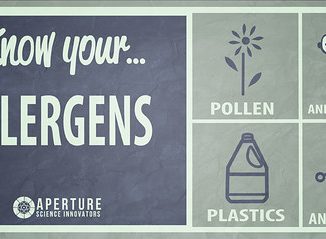
by Guneet Bhatia
Asthma is a chronic lung disease which leads to the inflammation in the airways. This inflammation leads to swelling of the airways and becomes very sensitive. It can cause chest tightness and wheezing.
Asthma frequently runs in the family, while not everyone in the family will get it. Many people with asthma may also have eczema or hay-fever, and a child is most probably to get asthma if these conditions run in the family.
Family History & Asthma
Genetics can be very complex and hard to understand. Having one parent with asthma increases a child’s possibility of getting asthma three-fold, while both parents having asthma increases a child’s possibility by six times.
In the same way, a family history of asthma amongst adults in the family also has been revealed to increase the risk of getting asthma.
Symptoms
Asthma symptoms and their severity differ by person. Few may have symptoms more often, while other people may only experience them occasionally.
Asthma symptoms can comprise:
- Chest tightness
- Wheezing
- Shortness of breath
- Difficulty breathing
- Coughing
Types of Asthma
1. Adult-Onset Asthma
Adult-onset asthma means the onset of asthma for the first time in an individual of middle age or older.
The common symptoms of asthma are usually present with wheeze, breathlessness and productive cough. But, there are few features that make adult-onset asthma dissimilar to that seen in the younger age group.
2. Exercise-Induced Bronchospasm
Exercise-induced bronchospasm (EIB) occurs when the airways in the lungs narrow during exercise.
This makes it difficult to breathe. If you have EIB, it may be difficult to exercise for more than 30 minutes at a time.
3. Allergic Asthma
Allergic asthma is the most usual type of asthma. Approximately 90% of kids with childhood asthma have allergies, compared with approximately 50% of adults with asthma.
The symptoms that go beside with allergic asthma comes after you breathe things such as dust mites, pollen or mold which are called allergens.
If you have asthma, it typically gets worse after you exercise in cold air or when you breathe dust, smoke, or fumes. At times, even a strong smell can be a trigger.
4. Nonallergic Asthma
If you have non-allergic which is also called as intrinsic-type asthma, you most probably experience from asthmatic symptoms after an infection that stays in your chest. As these infections are typically viral, antibiotics will not help as they are not effective against viruses.
Less often, asthma may be triggered by bacterial infections often linked with bronchitis or sinusitis. Antibiotics are frequently vital in these circumstances.
5. Occupational Asthma
Occupational asthma is a lung disorder in which materials found in the workplace leads the airways of the lungs to narrow and swell. This causes wheezing attacks, shortness of breath, coughing and chest tightness.
6. Asthma with Chronic Obstructive Pulmonary Disease (COPD)
COPD is a progressive adult disease that restricts the ability to exhale and is typically triggered by smoking.
While asthma and COPD are both considered different respiratory conditions, they share the symptoms of wheezing, coughing, and shortness of breath.
Risk Factors
Several of risk factors can raise a person’s probabilities of developing asthma. Genetics, or family history of asthma, increases a person’s possibility of getting asthma at some point in their life.
Other risk factors for asthma comprise:
- Smoking
- Being overweight
- Having allergies or any other kind of allergy-related problems
- Exposed to other forms of pollution, like exhaust fumes
- When exposed to occupational irritants, comprising dust and chemicals
Studies or Research Linking Back Asthma to Genetics
As per a 2014 review study, genetic factors account for approximately 70 percent of a person’s possibility of getting asthma that means the genes play a bigger role in whether or not an individual develops this ailment.
A study showed that asthma aggregates within families and are a difficult multifactorial ailment with the connection of genetic components and environment.
There was a study conducted in which it was observed that a family history of asthma accounts a great possibility in getting new-onset asthma in adults. Paternal asthma was witnessed to be more considerably connected with asthma than maternal asthma.
The family history of allergic diseases and asthma are strong factors of asthma, however, the magnitude of effect differs as per the hereditary group so that some subtypes have a stronger hereditary factor, and others may be more strongly linked to environmental contacts according to a 2014 cohort study.
Prevention
In order to prevent or reduce symptoms of asthma, following the below tips would be helpful:
- Maintaining an ideal weight for the age
- To avoid smoking
- Not to get exposed to secondhand smoke, pollution like exhaust fumes, chemicals and dust
- To take regular lung function test to assess the lung function
- To have a chest X-ray done
- Allergy tests recommended to check if any allergies that might trigger asthma symptoms
Treatments
1. Dusting the home regularly can aid in removing the allergens and decrease asthma symptoms.
2. Asthma treatments aim to aid a person to control the symptoms and avoid asthma attacks. Treatments may also reduce the long-term damage to the lungs that can happen with poorly controlled asthma.
3. A physician may suggest a combination of treatment methods:
Long-term medical treatments for asthma can include:
- Inhaled asthma control medications, comprising combination inhalers, corticosteroids, and bronchodilators
- Allergy medicines
The physician may also recommend fast-acting, short-term medications for asthma attacks which includes:
- Short-acting bronchodilators and beta antagonists, such as albuterol inhalers
- Oral or intravenous steroids to decrease airway swelling in severe attacks
Conclusion
Asthma has genetic constituents, however, it can also have other causes and risk factors, particularly in adult-onset asthma. People can typically control their asthma well using medicines.
But, few people might find their asthma symptoms hard to control. In those cases, it is best for people to recognize their triggers and try to prevent them as frequently as possible.
(Guneet Bhatia is a freelance medical writing professional and an aspiring novelist who intends to live a nomadic life with a vision to empathetically touch as many lives as a person can during his or her lifetime. She has a vested interest in breaking the health myths that people often surround themselves with.)



